This guide focuses on ways to plan, implement, use and finalize an assessment of how young women and their communities relate to abortion, through locally relevant, community and/or youth-led processes. It is designed to gain insights into the local context surrounding abortion care for young women to inform program design and to support meaningful youth participation in project design. It is a global resource for community groups, youth groups, peer educators, trainers, administrators, program managers and technical advisors of abortion care programs.
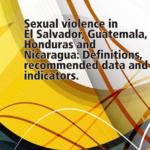
Sexual violence can have devastating effects on individuals, families, communities and societies. The findings from the study presented in this report are part of a regional collaboration in Central America to prevent sexual violence and to ensure that victims and survivors have access to all the services provided by the health and justice systems that they may need.
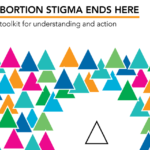
Abortion stigma plays a critical role in the social, medical and legal marginalization of abortion care around the world—and it leads to negative health outcomes for women, girls, trans people and our communities. It drives the high number of preventable deaths and injuries around the world due to unsafe abortion.
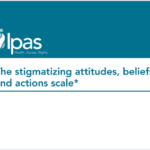
Unsafe abortion is a significant contributor to maternal mortality in Nigeria, and treatment of postabortion complications drains public healthcare resources. Provider estimates of medications, supplies, and staff time spent in 17 public hospitals were used to estimate the per-case and annual costs of postabortion care (PAC) provision in Ogun and Lagos states and the Federal Capital Territory.
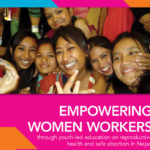
From 2011-2012, Ipas and our partners implemented a series of classes on sexual and reproductive health and rights (SRHR)—including information on safe abortion—for women who work at factories across Nepal’s Kathmandu Valley. This report explains how our project increased women workers’ knowledge of SRHR topics so they can better manage their own health and relationships and serve as resources for their families and communities. The report includes background information on Ipas’s work with youth, the context of sexual and reproductive health services for women workers in the Kathmandu Valley, details on the project’s various components, and explanation of key outcomes.
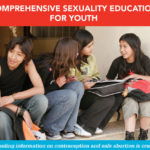
Comprehensive sexuality education (CSE) is a critical means of improving young people’s access to sexual and reproductive health (SRH) services and their ability to make safe and informed decisions. However, the topic of abortion remains absent from most CSE programs, which diminishes young people’s ability to avoid the dangers of unsafe abortion and to exercise their right to safe, legal abortion services. This factsheet summarizes the global movement to improve and expand CSE and offers key standards and approaches for creating quality CSE programs that include accurate, non-biased information about contraception and safe abortion.
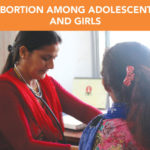
Young women and girls account for nearly one-third of all unsafe abortion-related deaths each year worldwide, with 15% of all unsafe abortions taking place among adolescents ages 15-19. Despite growing global attention to the health and welfare of adolescents and girls, little is known about the abortion experiences of girls under the age of 15. This factsheet examines the unique abortion-related experiences and needs of adolescents (ages 15-19) and girls (ages 10-14), based on a comprehensive literature review Ipas conducted in 2018.
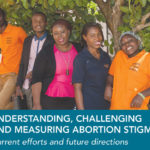
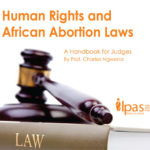
This handbook, written by Prof. Charles Ngwena and published by the Ipas Africa Alliance, is designed to raise judges’ awareness about the human rights obligations associated with abortion. Judges can use it as a guide to interpret and apply domestic abortion laws, taking into account global and regional human rights standards
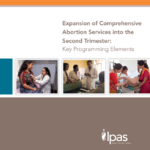
This guidance is designed for any health facility planning to expand its abortion services to include abortions in the second trimester of pregnancy.
Unsafe abortion is a significant contributor to maternal mortality in Nigeria, and treatment of postabortion complications drains public healthcare resources. Provider estimates of medications, supplies, and staff time spent in 17 public hospitals were used to estimate the per-case and annual costs of postabortion care (PAC) provision in Ogun and Lagos states and the Federal Capital Territory.
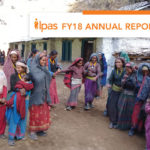
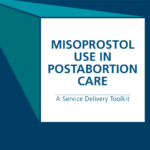
This toolkit is designed to help district or national-level clinicians, facility managers or program managers initiate the use of misoprostol as a medical treatment for incomplete abortion or integrate misoprostol into existing postabortion care services.
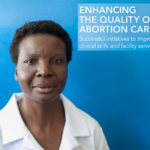
This report looks at initiatives in four countries—Nigeria, Nepal, Ghana and Zambia—where Ipas is working with governments, communities and other partners to provide clinical and programmatic support to providers and health-care facilities.
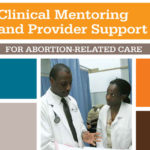
This training manual is for clinical mentors and others providing clinical and programmatic support to health-care providers offering abortion-related care. It includes content, activities and materials to improve their knowledge, attitudes and skills for clinical mentoring and provider support.
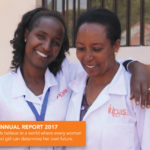
In 2017, Ipas continued to train doctors, midwives and nurses to safely and respectfully perform abortions and provide counseling on contraceptive options. We continued partnering with community-based organizations—experts on the needs of women and girls in their communities—to teach people about their sexual and reproductive rights. We also continued to educate policymakers about the need for safe abortion, to train police and lawyers on how to uphold women’s rights within their legal systems, and to partner with local groups that advocate for sexual and reproductive rights. Learn about our impact in 2017 and read stories and highlights from the year in our annual report.

